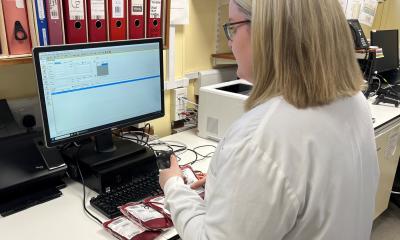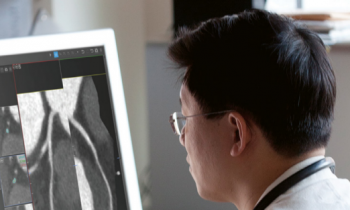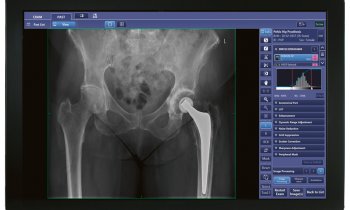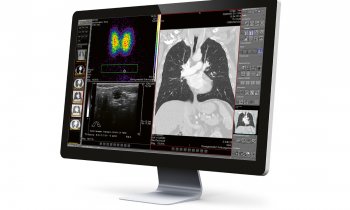Listening to your IPod improves your stethoscope skills
An IPod is a wonderful and useful thing. You can carry it with you wherever you go and repeat your favourite song as often as you like until you know every syllable of it. Probably this was the thought of Dr Barrett from Temple University School of Medicine, Philadelphia when using it for his lectures: To improve the stethoscope skills of his students, he recorded a “hitlist” of common heart murmurs and asked the young people to listen 400 times to them. The results were more than successful.
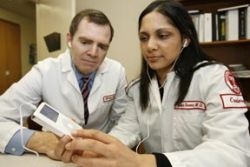
Study authors Mike Barrett and Archana Saxena listen to heart sounds on an iPod. They found that repetitive listening improved physicians stethoscope skills significantly.
(Photo by Joseph V. Labolito / Temple University)
(Photo by Joseph V. Labolito / Temple University)
The basic ability of physicians to recognize common heart murmurs with their stethoscope is only fair at best. Studies have found out, that the average rate of correct heart sound identification in physicians is 40 percent. An alarming fact, especially for the patients, who rely on the opinion of their physician.
After demonstrating that his students greatly improved their stethoscope skills by the “IPod method”, Michael Barret, M.D., clinical associate professor of medicine and cardiologist at Temple University School of Medicine and Hospital repeated his test with 149 general internists who also listened 400 times to five common heart murmurs including aortic stenosis, aortic regurgitation, mitral stenosis, mitral regurgitation and innocent systolic murmur. The surprising result: The identification rate was 80 percent. This experiment shows once again that easy and cheap tool sometimes have the greatest effect.
More Information and Heart-sound downloads visit: http://www.temple.edu/temple_times/march07/DociPod.html
04.04.2007
More on the subject:



